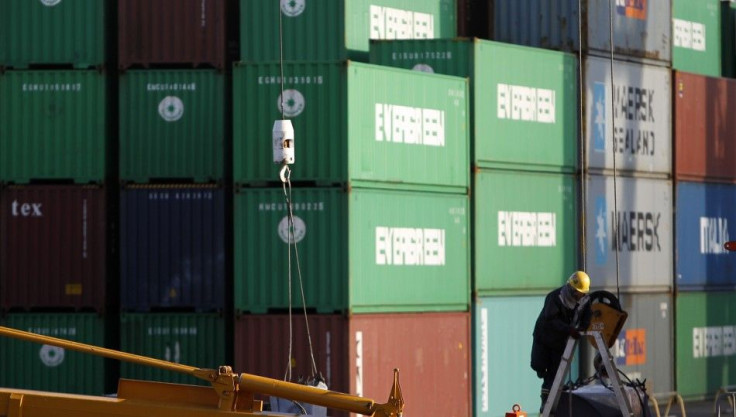Narrower US Trade Gap Fails To Ignite Hopes Of Economic Growth
"External trade is likely to remain a drag on real U.S. economic growth in the second half."

The increased sale of American products in Europe and China in May, amid economic turmoil in both regions, failed to evoke hopes of economic growth in the U.S., analysts said Wednesday.
The U.S. trade deficit in May fell 3.7 percent to $48.7 billion from $50.6 billion the month before, according to data released by the U.S. Census Bureau and the Bureau of Economic Analysis on Wednesday.
May's exports of $183.1 billion exceeded April's figures by 0.2 percent. However, import bills of $231.8 billion declined nearly 0.7 percent from the month before, mainly due to a drop in imported oil prices.
There is no reason to believe that second-quarter real GDP growth is any stronger than the annualized rate of 1.5 to 2 percent that we have already penciled in, Paul Ashworth, U.S. economist at Capital Economics stated in research note.
The country's imports would have actually increased by 1.1 percent, if the effects of declining petroleum import costs were stripped out, Ashworth added.
However, trade experts are reassured because exports to Europe and China didn't weaken -- a sign of increased confidence among Europeans and Chineses in the ability of their political leaders to keep economic instabilities from turning into economic disasters.
Yet bilateral trade gaps -- the deficit that the U.S. has with Europe as well as China -- rose in May. The U.S. deficit with Europe ratcheted 20.7 percent in May to $10.5 billion, from the month before mainly due to a 7.7 percent climb in imports.
The U.S.-China trade shortfall -- one of the largest in the world -- has deepened 18 percent from 2008 to $202 billion. The gap continues to widen even as other countries run trade surpluses with Beijing. Washington has also been criticized for sitting back and allowing Americans to purchase low-end consumer goods from China.
Though analysts forecast that plummeting crude oil import prices will further shrink the country's gaping trade deficit over the next two months, they remain dubious about where real exports -- export growth adjusted for inflation -- will trend. The skepticism comes in the wake of a continued slowdown in economic growth across not only Europe but also emerging markets that the U.S. has been relying on as saviors that will lead the way out of a global downturn.
We fear that any gains in real exports will be modest at best. Outgoing shipments could even fall, Ashworth said.
The country's external trade, weighed down by a decline in real export orders, will be a drag on actual U.S. economic growth at least for the next two years.
© Copyright IBTimes 2025. All rights reserved.



















